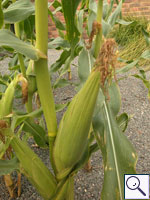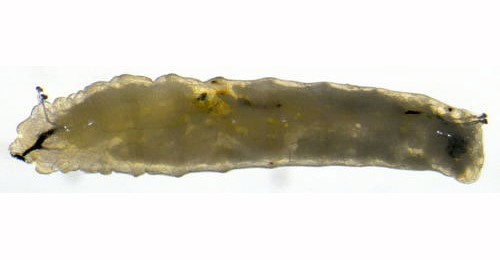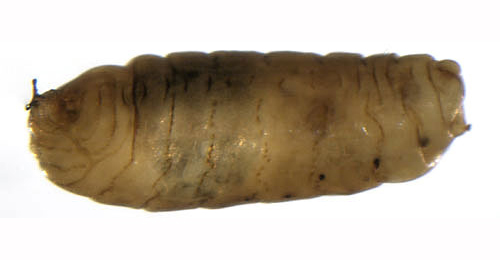|
||||||
|
ZEA. Millet and Cockspurs. [Poaceae] |
|
|
The introduced Maize (Z. mays) is the only species of Zea recorded in Britain. Four British miners are recorded on Zea in Britain. Nearly 100 British miners or possible miners are recorded on grasses in Britain. A key to the European miners recorded on Zea is provided in Bladmineerders van Europa. It is recommended that adults of all miners on grasses be reared to be certain of their identity. |
 Maize Zea mays |
Key for the identification of the known mines of British |
1a > Leaf-miner: Broad elongated mine; the form is dependent of the leaf form of the host plant. Frass green. Usually a number of larvae together in a mine. Pupation in the mine. |
|
Cerodontha incisa (Meigen, 1830) [Diptera: Agromyzidae]. |
1b > Leaf-miner: Upper-surface corridor, generally in the upper half of the blade, running up to the leaf tip, usually occupying more then half the width of the leaf. Frass in green stripes at either side of the corridor. Never more than one larva in a mine. Puparium within the mine, metallic black, not anchered with a string of silk. |
|
Cerodontha superciliosa (Zetterstedt, 1860) [Diptera: Agromyzidae]. |
1c > Leaf-miner: Long, narrow, whitish mine. Pupation internal (Spencer, 1976: 453); anterior spiracles projecting through the epidermis. Whitish, upper-surface, rather narrow corridor with comparatively large frass grains that are laying further apart than their diameter. Pupation within the mine. The anterior spiracles of the orange-brown puparium penetrate the epidermis. |
 Chromatomyia nigra larva, lateral Image: © Willem Ellis (Bladmineerders van Europa) |
 Chromatomyia nigra pupa, lateral Image: © Willem Ellis (Bladmineerders van Europa) |
|
Chromatomyia nigra (Meigen, 1830) [Diptera: Agromyzidae]. |
1d > Leaf-miner: A short narrow mine, generally near apex of leaf. Larva with each segment bearing a row of characteristic papilli which are retained in the puparium (Spencer, 1976: 328). Pupation internal. Transparent, short and narrow mine not far from the leaf tip. Frass in two rows of grains. Pupation outside the mine. |
|
Pseudonapomyza atra (Meigen, 1830) [Diptera: Agromyzidae]. |
| Last updated 13-Feb-2018 Brian Pitkin | ||
